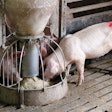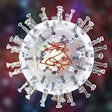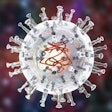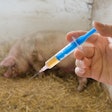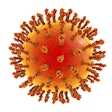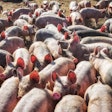
Over the past week, new cases of African swine fever (ASF) have been confirmed in six European states. Registering by far the most new outbreaks in this population were Bosnia-Herzegovina and Croatia.
Total number of confirmed ASF outbreaks in domestic pigs stands at 3,961.
Covering broadly the European Union (EU) member states and most of its immediate neighbors, this is according to the Animal Disease Information System of the European Commission (EC; as of October 13).
For the whole of 2022, 12 European states registered a total of 537 outbreaks in this population with the EC. Of these, 60% of affected herds were in Romania.
While the number of countries with cases in backyard and commercial herds remains at 16, the total outbreaks has risen by 287 since the previous update dated October 6.
Accounting for most of the increase is the Balkan region — 210 more outbreaks in Bosnia-Herzegovina, and 65 in Croatia. First cases in those countries were confirmed only at the end of June this year.
Registering the highest number of outbreaks in domestic pigs with the EC so far in 2023 is Bosnia-Herzegovina with a total of 1,355. Following come Croatia (now with 1,019), Serbia (762) and Romania (695). The next highest national total is 30 in Poland.
ASF spread continues among backyard herds
Further details and trends in outbreaks are contained in official notifications from the national veterinary agencies to the World Organisation for Animal Health (WOAH).
Over the past week, the Croatian authority has registered a cluster of 83 outbreaks in domestic pigs. Starting on September 29, these directly impacted around 1,420 animals. They bring this country’s totals to more than 20,400 swine at 999 locations since the end of June.
Cases continue to be concentrated mainly in the northeastern country of Vukovar-Srijem, where one or more outbreaks have now been confirmed in 21 of the 31 towns and municipalities, based on WOAH notifications.
Over the past week, no notifications from the authorities in Bosnia-Herzegovina have been published by WOAH.
However, the five most recent outbreaks in Poland have been confirmed with WOAH, bringing the nation’s total to 30 for the year to date. All affected herds were relatively small, each comprising between six and 196 pigs. Three occurred in the central province of Greater Poland, while the other two were in the northwest in West Pomerania.
In Ukraine, the number of confirmed ASF outbreaks in the province of Kyiv since July has risen to 10. The two latest events affected a village herd of 158 animals, and two pigs were found dead elsewhere.
Outbreaks in wild boar pass 6,500
Up to October 13, the total number of ASF outbreaks across Europe stood at 6,505, according to the EC’s System. To date, 20 countries have registered one or more outbreaks through this system in 2023.
For comparison, there were a total of 7,442 outbreaks of ASF in wild boar across 15 European countries covered by the EC System in the whole of 2022.
Registering the highest number of outbreaks in this category so far this year is Poland with a total of 2,335. After this come Germany (846 outbreaks in the wild population), Italy (801), Latvia (568), Slovakia (512) and Hungary (357).
Since the EC’s previous update dated October 6, nine countries in this region have reported new ASF cases in this population. Registering the largest increases in outbreaks was Poland with 28. Totals for Bulgaria, Italy and Latvia each rose by five, Romania by four, Lithuania and Ukraine by three, and Bosnia-Herzegovina and Estonia by one.
Total confirmed cases among Sweden’s wild boar remains at 49, according to the state veterinary institute SVA.
Update on ASF situation in western Russia
While the disease situation in Russia is not included in the EC’s system, the veterinary authority notifies WOAH about ASF developments.
Over the past week, two backyard herds have tested positive for the ASF virus in the Southern federal district.
According to WOAH notifications, one of these was located in the Rostov region, and comprised six pigs, while the other affected a single pig in Volgograd. In the latter case, the return of ASF after a five-month hiatus was attributed in the report to illegal animal movements.
Among the Russian wild boar population, one further case has been confirmed to WOAH. In a forest in the Mari El Republic in the Volga federal district, a wild boar tested positive for the virus last week.
View our continuing coverage of the global African swine fever situation.





